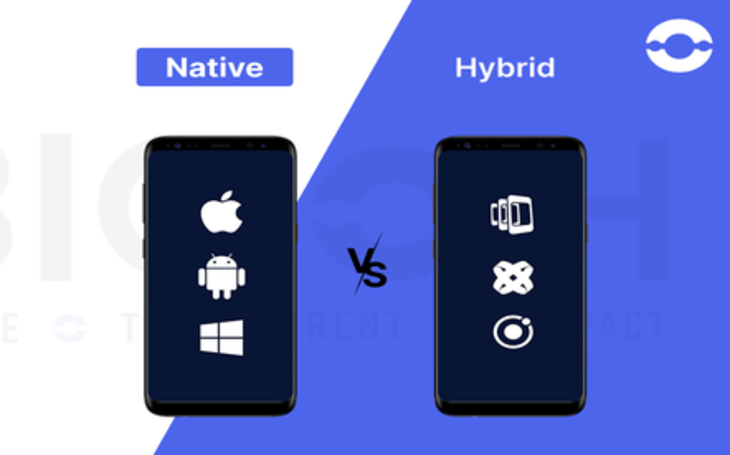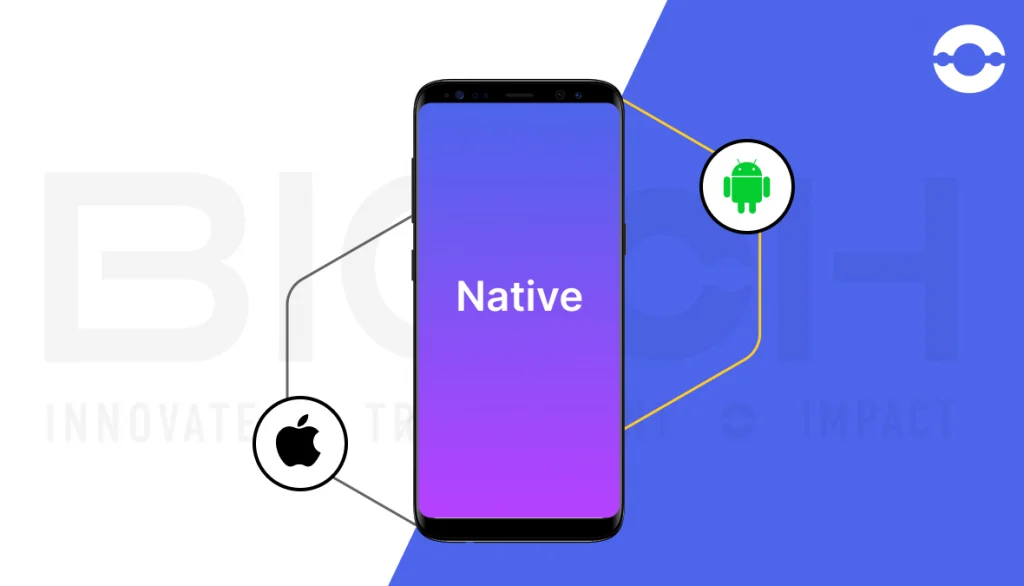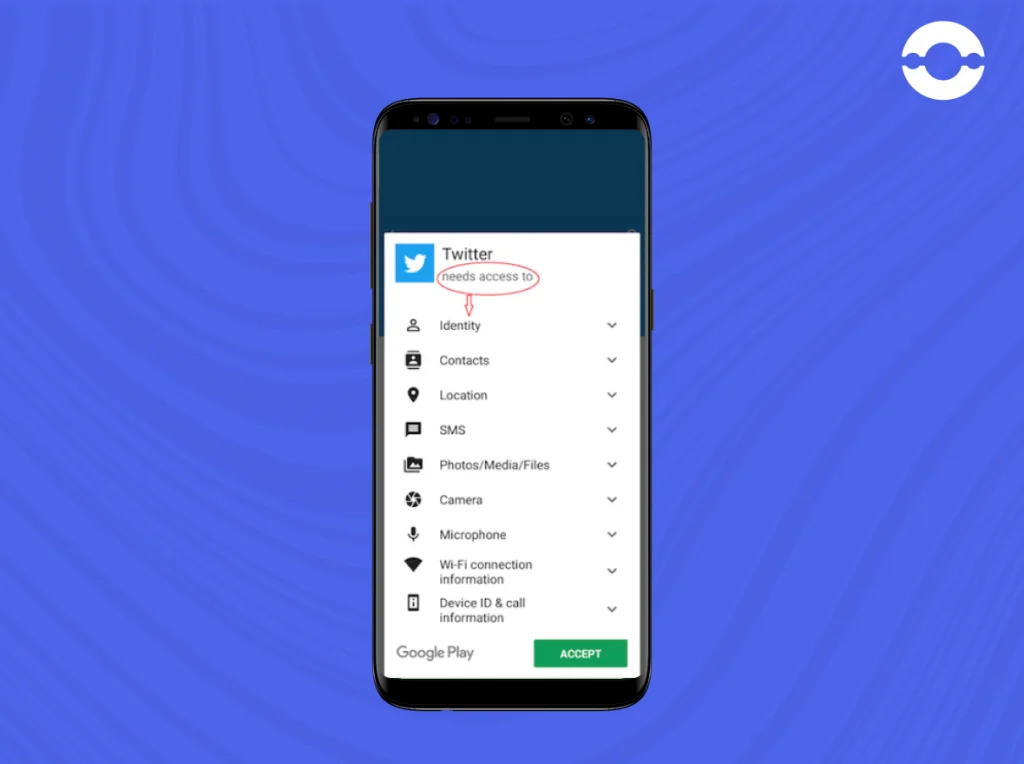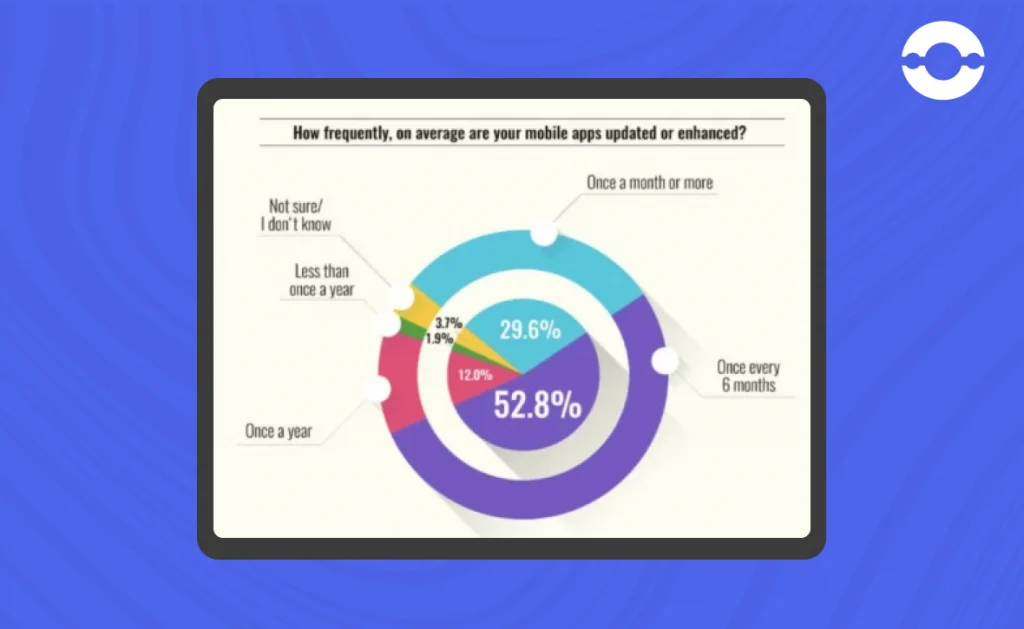
As you know that in the world of mobile applications, you can find plenty of apps that are of different kinds. Some of these applications include hybrid and native apps. Mobile applications are always there to provide convenience and comfort to users. After spending hours of research in developing a mobile app, you are in a dilemma of whether you should invest in Hybrid apps vs native apps.
Then, this battle of choosing one among them: Hybrid vs Native apps is like a never-ending destination.
In this blog, I will dive deeper to make you understand why mobile apps are important, an overview of native vs hybrid applications, which one should you choose for your app development project.
Let’s get a quick overview of hybrid vs native apps
Here, we are going to share a glimpse of hybrid apps, native apps, and the difference between hybrid and native apps.
What Are Hybrid Apps?
Hybrid apps combine the capabilities of native and web apps. Users can access hybrid apps through web browsers. The development time of these apps is faster than native apps. Also, hybrid apps can take advantage of platform-specific features such as GPS, camera, etc.
Developers use web technologies such as CSS, HTML5, and JavaScript to build hybrid apps. A single codebase is used to develop these apps and these apps follow the principle of “write once, run everywhere”.
What Are The Advantages of Hybrid Apps?
1. Saves development time
Developing hybrid apps saves development time as developers need to use a single codebase for developing an app for multiple platforms. In today’s digital landscape, it becomes important for developers to market the app quickly. Additionally, hybrid app developers can speed up the development process using various libraries such as Xamarin and PhoneGap.
2. Work across multiple platforms
Hybrid apps can work on multiple platforms (Android/IOS) with the help of a single codebase. Developers need not worry about writing various codebases to build an app that can support multiple platforms.
3. Provides offline support
Hybrid apps provide users to access the app in case of unstable internet connectivity. Hybrid apps provide offline support functionality to the users because these apps keep on saving the data locally. If there is a circumstance where users cannot see the app elements properly, they can access the app offline.
4. Cost-effective solution
Hybrid apps have cross-platform compatibility, making it easier for developers to use them on multiple platforms. Hence, it saves your development cost of using a single codebase to create an app. Even many top brands are developing hybrid apps. For instance – including Twitter, Uber, and Instagram.
What Are The Disadvantages of Hybrid Apps?
1. Poor User experience
The user experience offered by hybrid apps is not good as every OS functions differently. A hybrid app developed for Android might give a poor user experience for IOS users.
2. Browser requirement
Users can access hybrid apps through a web browser. They need to type the URL to access the app because it’s not launched in the app store. Therefore, it becomes difficult for users to interact with hybrid apps because these apps do not work smoothly.
3. Access to an Internet connection
Hybrid apps are primarily websites that require an internet connection to access a full range of features. While in the absence of internet connectivity, users might find trouble accessing it offline.
4. Graphics
Hybrid apps do not produce high-quality images as compared to native apps. When it comes to designing high-quality graphics or leveraging 3D elements, it’s not profitable for you to go with a hybrid app development approach.
What Are Native Mobile Apps?

Native mobile apps are those apps that are created for a specific operating system (IOS/android). Here, developers need to write separate codebases for iOS and Android app development.
Developers create 2 types of native apps –
1. Android apps
Android apps are created using Java/ Kotlin programming language
2. IOS apps
Developers use objective c/swift to build IOS apps
Native apps made for one platform cannot be used for another platform. For example – Native android apps cannot be used on IOS. On the contrary, native IOS apps cannot be used on Android.
Last but not least, Users can access native apps through their mobile devices. All the apps downloaded on your smartphones are considered as native apps. Developers can access all the platform features such as camera, GPS, Bluetooth, etc. Users can download native apps from the app store or play store.

What Are The Advantages of Native Apps?
1. High Performance
Native apps are best at providing exceptional performance to the users because these apps are developed for a specific platform. The speed of native apps is comparatively faster as developers create these apps using platform-specific programming languages.
2. Highly secured apps
Native apps are more highly secure than hybrid apps because they are launched on the app store or play store once they get approval from Android/IOS. It becomes easy for developers to launch these apps on the app store or play store because they are confined to specific platform guidelines.
3. Provides the best user experience
Native apps offer interactive user experiences to the customers because each platform has specific UI/UX guidelines. It eliminates the need of a learning curve and allows users to interact hassle-free with app elements.
4. Access to new updates
It becomes easy for the developers to access the newest features quickly as and when Android and IOS release new app updates. Hence, developers need not wait to get additional tools to access app features.
What Are The Disadvantages of Native Apps?
1. High development cost
The development cost of native apps is comparatively higher because 2 separate codebases are created to build apps, and thereby organization needs to spend extra dollars on hiring Android and iOS app development services separately.
2. Need of experienced developers
Firstly, To create an app for the app store, the developer should have expertise in using objective C/swift language. We cannot expect an android app developer to create an IOS app. As the programming languages are different, so there is a need to hire an experienced developer for this.
3. Time-consuming
The time required to develop native apps is a bit higher than cross-platform apps as the developers need to write different codebases for running an app. One code can’t be repurposed for another platform.
4. Expensive support & maintenance

Generally, there is a misconception among developers that there are no expenses once the app gets launched. For instance -The yearly cost of maintaining native apps ranges from 20% to 50% of the app development process.
Difference Between Native And Hybrid Apps
| Basis of comparison | Native apps | Hybrid apps |
| Programming languages | Developers uses Java/Kotlin for developing android apps. Objective C/Swift is used for developing IOS apps altogether. | Hybrid framework uses HTML, CSS and JavaScript language |
| Code portability | Native app developers use various codebases for developing multiple apps | Developers use single codebase for creating apps that supports multiple platforms |
| Time to release apps | It is a time-consuming process to create separate codebases, design the interface and then release the app in the market | Hybrid apps can be marketed quickly as it uses single codebase |
| Performance | Native apps offer exceptional performance to the users as apps are developed using platform specific guidelines | Hybrid apps does not provide native performance when it comes to designing 3D elements in an app or adding complex interfaces |
| Approvals | An app is launched in the market once it gets approval from app store or play store | Hybrid apps does not require approval from app store or play store, these apps are accessed through web browser |
| Maintenance | Native apps require high maintenance efforts because developer needs to maintain app for individual platforms | Developer need not worry about maintaining separate app again and again. Furthermore, cost of maintaining an app is relatively low |
| Top players /apps | WhatsApp, Spotify | Instagram, Evernote, Twitter, Uber, Feedly |
When to Choose Native Apps?
- If you want to access platform integration capabilities such as cameras, sensors, GPS, etc.
- If you want to build a responsive mobile application
- If you want to provide high performance to the users
- If you want to develop 3D animated apps or gaming apps
- Lastly, If you want to get the utmost security in an app
When to Choose Hybrid Apps?
- If you want to develop apps quickly
- If you have a limited budget
- If you’re going to use the same codebase across multiple platforms
- If you’re going to build a cross-platform application
- If you’re going to develop a web app
- If you’re going to target both mobile and web users
To Sum up
Of course, Today’s customers won’t take you for granted. If your app does not have a responsive design then users would never stick to it. Hence, there might be chances that the bounce rate of your app increases.
In short, The above use cases will give you a gist to understanding about hybrid vs native framework. Furthermore, If you are not able to choose which app you need to develop then connect with our experts now to accelerate your business.
Also Read: Hybrid Vs. Native Vs. Cross-Platform: Which Is Winner
FAQs
Both are equally good however Native App scales and works for all use cases While Hybrid app development is more suitable in the following cases –
1. When you want to access platform-specific capabilities
2. When you want to develop a 3D app or an animated app
3. When you want to provide superior performance to the users
Native app development is suitable in the following cases –
1. When you want to build cross-platform apps
2. When you want to launch your app quickly in the market
3. When you have a broad range of target audience
4. When you have budget constraints
Here are the few factors that have to be taken into consideration before choosing a native or hybrid app-
1. Time required to build an app.
Choosing a hybrid app is a beneficial alternative for you if you need to construct an app quickly.
2. Platform-specific functionalities
Secondly, develop a native app if you want access to platform-specific integration features.
3. Budget
If you have a limited budget, then developing native apps is not recommended. You can choose to create hybrid apps.
To conclude, The performance of native apps is superior to hybrid apps. As native apps have access to specific platform capabilities, the performance it offers is exceptional. Hybrid apps do not perform faster when it comes to building 3D apps or game apps or Apps that requires lot of processing and Native functionalities
Yes, Hybrid apps can access device-specific features just like native apps however it might be slower and may not scale in all use cases and scenarios. Most of time, in hybrid app, you are always doing feasibility study on use case.
In comparison to hybrid apps, the user experience with native apps is significantly more interactive.
Due to the fact that hybrid apps have the same appearance, functionality, and user experience regardless of whether they are running on Android, iOS, or a specific device version, hybrid apps are inconsistent in terms of user experience based on device recommendations. This makes these apps less engaging.
Due to users’ long-term exposure to the typical native user interfaces across numerous apps, native apps are easier to use as compared with Hybrid Apps.




